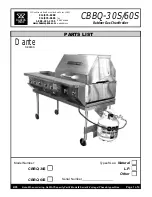
8 / 136
00RNO0333-B (U0625869)
EVO S -
Installation and Servicing
These rules include:
- Opt for an expansion vessel with a membrane rather than an open
expansion vessel that allows direct passage.
- Make sure pressure in the equipment is more than 1 bar when cold.
- Remove non-gas-tight components (permeable) and use gas-tight
equipment instead.
If the guidelines above are followed, the unit’s system water has the proper
characteristics to last a long time: 8.2 < pH < 9.5 and concentration in
dissolved oxygen < 0.1 mg/litre.
If there is a chance that oxygen could enter the unit, you must take additional
precautions. Adding an oxygen scavenger (e.g. sodium sulphite) is highly
recommended. We recommend you contact specialised companies for
water treatment issues, which will be able to suggest:
- the appropriate treatment based on the characteristics of the installation,
- a monitoring and performance warranty contract.
For units in which the water comes into contact with heterogeneous materials,
such as copper or aluminium, appropriate treatment is recommended in order
to ensure that the unit will last. In most cases, this consists of adding corrosion
inhibitors (in the form of chemical solutions) to the unit. It is recommended to
contact water treatment specialists.
1.5.4. Unit monitoring
If the above recommendations are followed (new installation or renovation),
it should be sufficient to:
- check the amount of make-up water (fill water make-up water
volume < 3 times the unit volume.
- check the pH level (stable or slightly increasing).
- check the TH (stable or slightly decreasing).
We recommend these checks are carried out 2 to 3 times a year. Note that
monitoring the quantity of make-up water is critical to the long life of the unit.
If any of these three parameters deviates from the above recommendations,
refer to a water treatment specialist to correct the problem.
1.5.5. Installation of the plate exchanger
If the recommendations above cannot be met, you can set up a plate
exchanger to separate the primary system from the secondary system, which
protects the boiler from undesirable effects.
1.5.6.
Installation of a filtration system
A filtration system (filter, sediment well, etc.) on the back of the boiler is
recommended in order to remove suspended particles from the unit.









































